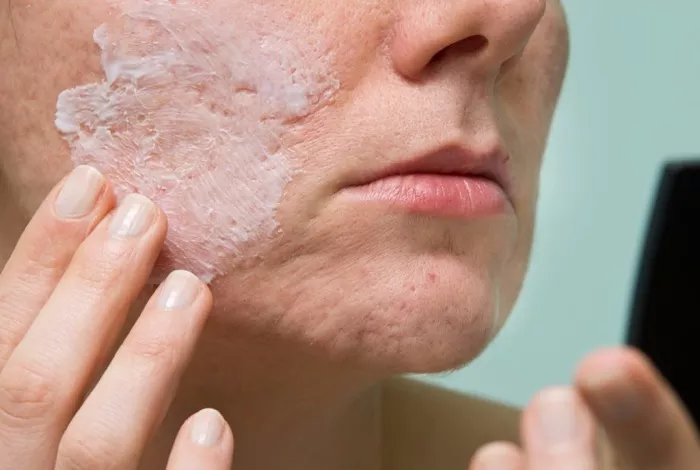Allergies, specifically allergic rhinitis, can be a constant source of discomfort for many individuals. Whether triggered by seasonal allergens like pollen or year-round culprits like dust mites and pet dander, the symptoms of allergic rhinitis, including sneezing, runny nose, and itchy eyes, can significantly affect one’s quality of life. While medications and allergy shots are common treatment options, there is a growing body of evidence that suggests that the foods we consume can play a pivotal role in managing and even alleviating allergy symptoms. In this comprehensive guide, we will explore the potential of using food to cure allergic rhinitis, examining the relationship between diet and allergies, and providing practical tips on incorporating allergy-fighting foods into your daily life.
Understanding Allergic Rhinitis and Its Impact on Health
Allergy, a term that encompasses a wide range of immune responses to various triggers, is at the heart of allergic rhinitis. Allergic rhinitis, often referred to as hay fever, occurs when the immune system reacts excessively to substances like pollen, dust mites, or animal dander, causing inflammation in the nasal passages. This inflammation leads to the hallmark symptoms of allergic rhinitis: sneezing, a runny or stuffy nose, and itchy or watery eyes.
While allergic rhinitis is not a life-threatening condition, it can be extremely disruptive to daily life. It can lead to sleep disturbances, decreased productivity, and a reduced overall quality of life. Many people turn to over-the-counter or prescription allergy medications to manage their symptoms, but these drugs often come with side effects and may not provide complete relief.
The Role of Diet in Allergic Rhinitis
Diet plays a fundamental role in maintaining our overall health and well-being, and emerging research suggests that it can also influence the severity of allergic rhinitis symptoms. The connection between food and allergies is multifaceted, with certain dietary choices potentially exacerbating symptoms, while others may help alleviate them.
1. Anti-Inflammatory Foods for Allergy Relief
Inflammation is a key driver of allergic rhinitis symptoms. When the body detects allergens, it mounts an immune response that results in inflammation in the nasal passages and elsewhere. Certain foods, known for their anti-inflammatory properties, can help mitigate this response. Incorporating these foods into your diet may lead to a reduction in allergy symptoms.
2. Foods Rich in Quercetin: Nature’s Antihistamine
Histamine is a chemical released by the body in response to allergens, and it is responsible for many allergy symptoms. Some foods contain quercetin, a natural antihistamine that can help counteract histamine’s effects, reducing symptoms like sneezing and itching.
3. The Gut-Allergy Connection: Probiotics and Prebiotics
Recent research has shed light on the gut microbiome’s role in allergies. Maintaining a healthy balance of gut bacteria through probiotics and prebiotics may help regulate the immune system’s response to allergens, potentially reducing the severity of allergic rhinitis symptoms.
4. Omega-3 Fatty Acids: The Healthy Fat for Allergy Management
Omega-3 fatty acids, found in fatty fish, flaxseeds, and walnuts, have anti-inflammatory properties that can benefit those with allergic rhinitis. These healthy fats may help modulate the immune system’s response to allergens, leading to milder symptoms.
5. Foods to Avoid: Allergens and Triggers
Just as certain foods can alleviate allergy symptoms, others can exacerbate them. Understanding common food allergens and their potential cross-reactivity with environmental allergens is crucial for managing allergic rhinitis through diet.
Incorporating Allergy-Fighting Foods into Your Diet
Now that we’ve explored the connection between diet and allergic rhinitis, let’s delve into practical strategies for incorporating allergy-fighting foods into your daily meals. Making conscious choices about what you eat can have a substantial impact on your overall well-being and allergy management.
1. Create an Allergy-Friendly Meal Plan
A well-planned menu that includes anti-inflammatory foods, quercetin-rich options, probiotics, and omega-3 fatty acids can serve as a powerful tool in your fight against allergic rhinitis. By incorporating these foods into your daily meals, you can potentially reduce the frequency and severity of allergy symptoms.
2. Explore Allergy-Friendly Recipes
The internet is a treasure trove of allergy-friendly recipes that cater to various dietary preferences and restrictions. Whether you’re looking for gluten-free, dairy-free, or vegan options, there are plenty of delicious recipes to choose from that incorporate allergy-fighting ingredients.
3. Keep a Food Journal
Keeping a food journal can help you identify patterns between your diet and allergy symptoms. By documenting what you eat and noting any changes in your rhinitis symptoms, you can pinpoint foods that either exacerbate or alleviate your allergies.
4. Consult with a Registered Dietitian
For personalized guidance on using food to manage allergic rhinitis, consider consulting with a registered dietitian with expertise in allergies and nutrition. They can help you create a tailored dietary plan that addresses your specific needs and preferences.
Conclusion
In conclusion, allergic rhinitis can be a persistent and bothersome condition, but it’s essential to remember that you have the power to influence the severity of your symptoms through dietary choices. By incorporating anti-inflammatory foods, quercetin-rich options, probiotics, and omega-3 fatty acids into your diet while avoiding potential allergens, you can take proactive steps toward alleviating your allergic rhinitis symptoms naturally.
While dietary changes may not replace the need for other allergy management strategies like medication, they can complement your treatment plan and potentially reduce your reliance on pharmaceuticals. Always consult with a healthcare professional before making significant dietary changes, especially if you have severe allergies or other medical conditions.
By prioritizing your health and wellness through mindful eating, you can work towards a life with fewer sneezes, clearer nasal passages, and a greater overall quality of life, free from the constraints of allergic rhinitis.
[inline_related_posts title=”You Might Be Interested In” title_align=”left” style=”list” number=”6″ align=”none” ids=”2609,2518,2638″ by=”categories” orderby=”rand” order=”DESC” hide_thumb=”no” thumb_right=”no” views=”no” date=”yes” grid_columns=”2″ post_type=”” tax=””]


































